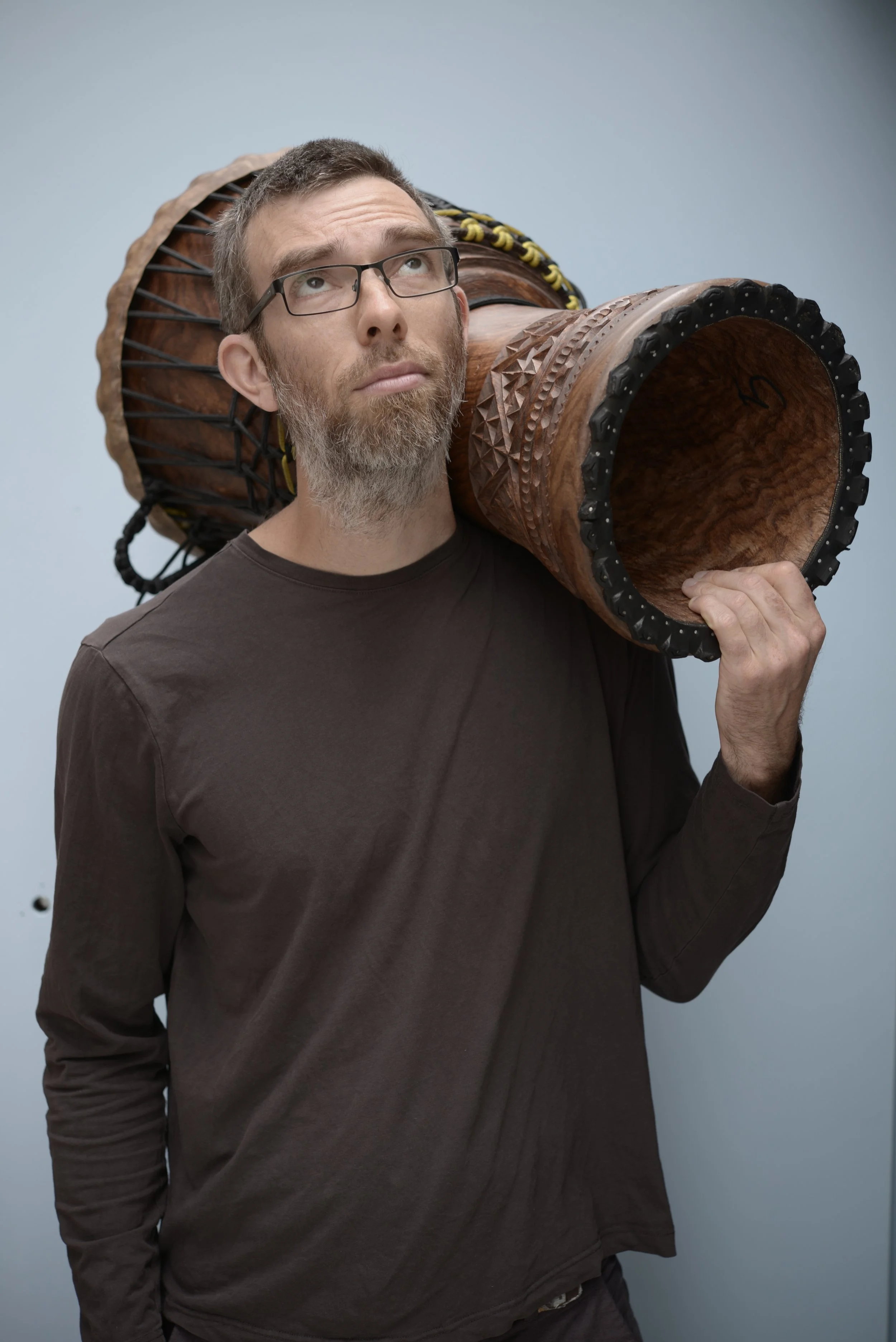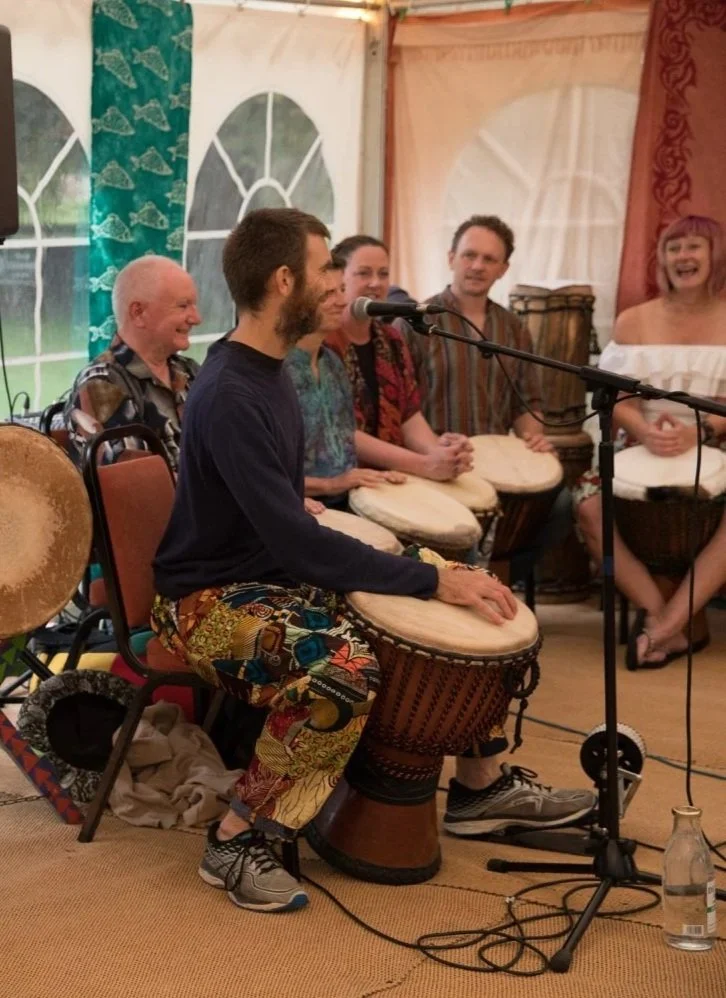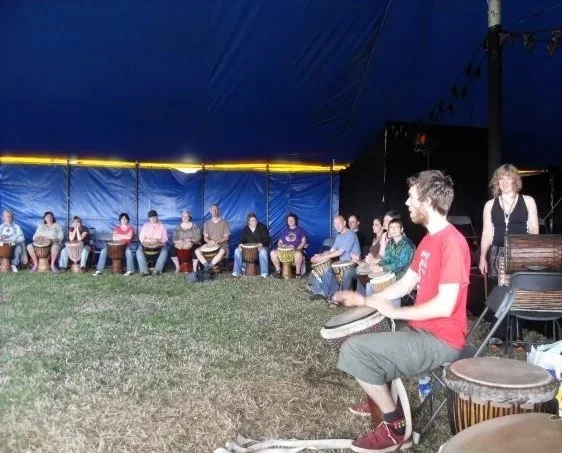Teaching Practice
A deep, clear and insightful approach to teaching, rooted in the rich traditions of West African drumming.
Photograph: Max Baillie
What I Teach
I specialise in teaching traditional West African drumming – particularly the old-school Malian djembe style, known for its groove, heavy swing, and melodic phrasing. I also teach the virtuosic jeli-dunun of the Khassonké and the interlocking sangban and dununba patterns of Upper Guinea.
Over decades, I’ve developed a clear and thoughtful approach to teaching this music. I draw on deep musical knowledge to choose and adapt repertoire for each group — grounded in tradition, but alive with groove, playfulness and fresh insight.
Whether you're starting out or honing your skills at a professional level, I offer pathways into these traditions that are joyful, rewarding, and musically rich. My teaching includes:
Clear, structured, traditional repertoire
Technique and effective practice methods
Cultural and historical context
Ear training, theory, and feel
Groove and rhythmic phrasing
Notation and analytic tools
Insights into pedagogy and teaching
A supportive, engaging environment tailored to all levels and learning styles
I aim to cut through the noise — to share music that is rooted, meaningful and alive.
Photograph: Jed Hoile
How I Teach
Bridging Cultures
Having learned this music as an outsider, I understand the challenges and common confusions students often face. My approach bridges cultures — combining deep traditional knowledge and with accessible, intuitive teaching methods. I specialise in clarifying the elements that are often lost in cultural translation.
Tools & Techniques
I draw on my background in Western music (clarinet, drum kit, theory, and notation) to illuminate the rhythmic feel and structure of djembe music — while also recognising where Western frameworks fall short and we need new concepts. Many students find the notation I use especially helpful as a memory aid; I often write in a time-unit system that’s accessible with or without formal musical training.
Deep Learning
I care about how people think and feel rhythm – not just playing patterns, but sensing the music from the inside out. I create tools that support deep learning without flattening nuance. Whether through theoretical insight or direct, physical learning, I help students internalise groove, swing, and structure — the music’s grammar — blending traditional knowledge with the perspective of a Western learner.
Thoughtful Foundations
My MA in Ethnomusicology at SOAS deepened my understanding of music’s wider cultural context, from symbolism and globalisation to cognition, transmission, and representation. These insights continue to shape how I share West African music in ways that are respectful, reflective, and true to its cultural depth.
Experience & Recognition
I’ve taught djembe since my teens, and many of the UK’s homegrown teachers have studied with me over the years. I’ve regularly taught at major djembe events including:
WOMAD
Drum Camp
Workshops and camps across the UK djembe community
Since 2009, I’ve also run my own residential weekends — HansCamp North and HansCamp East — now fixtures of the UK djembe calendar.
Photograph: Jed Hoile
My Place in the Music
Black people and people of colour are under-represented in positions of power in UK music and it’s important to me that my teaching and performing practice doesn’t reinforce structures of power and privilege in the music industry but instead helps to break them down.
I feel honoured to work with music from West Africa, and I’m deeply grateful to my teachers and the traditions they’ve shared. In my own teaching, I aim to build meaningful bridges — helping students engage with djembe music in a way that’s respectful, rooted, and enriching for everyone involved.
It’s not enough to teach this music well — I also want to share the platform and the resources. I platform West African teachers working in the UK through the programming of my workshop events, and my own teaching aims not only to connect students to the joy of Mande music, but also to prepare them to learn more deeply with African teachers.



